Cancer and ageing
The global ‘longevity revolution’ will continue to impact cancer control as cancer is more prevalent in older adults.
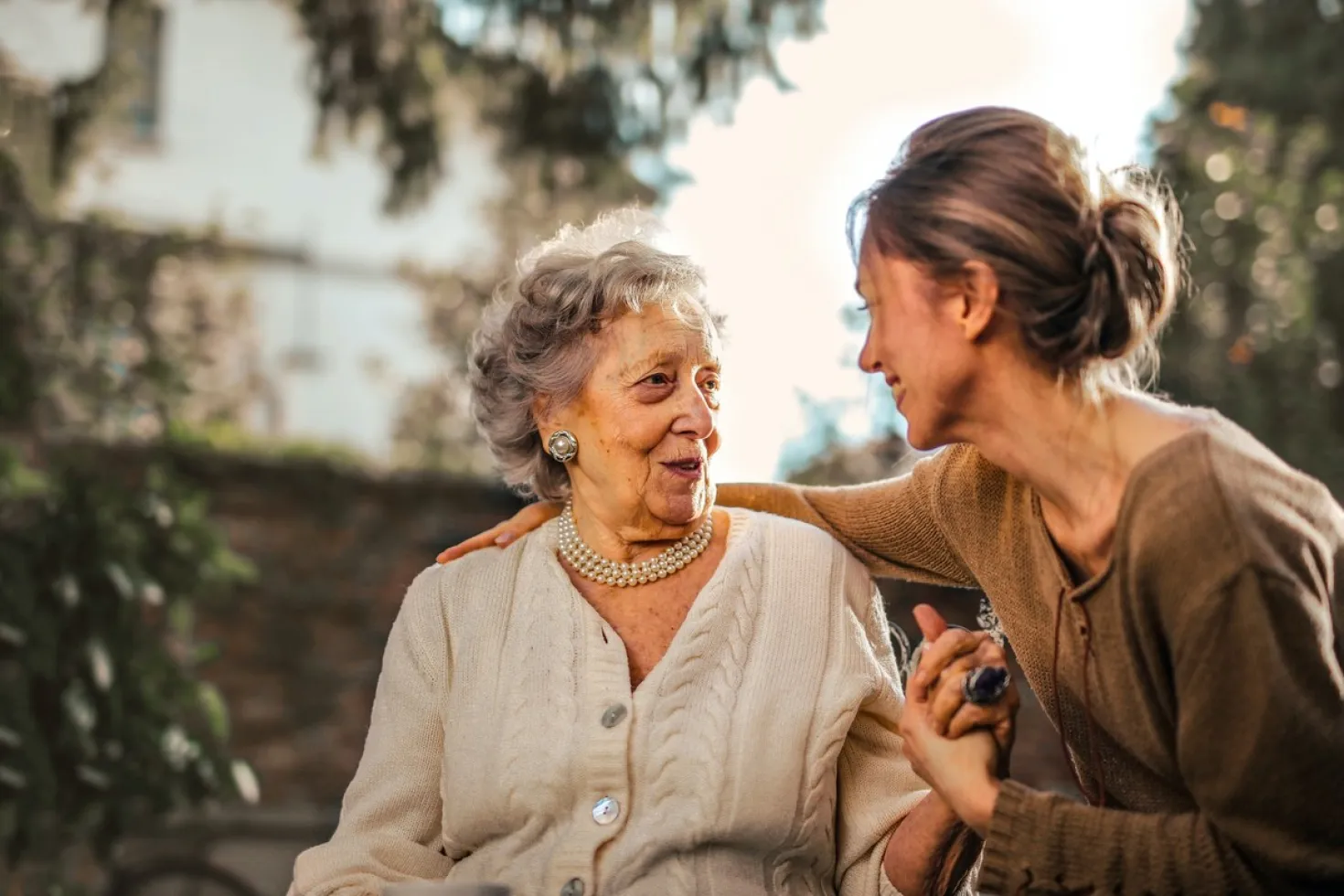
The world’s population is ageing rapidly. There are currently over 760 million people worldwide above the age of 65 years [i], representing over 9% of the global population. Estimates suggest that this proportion will rise to 1.6 billion people by 2050, with the greatest demographic shift seen in LMICs where the population of over-65s is projected to grow from 37 million in 2019 to 120 million in 2050.
Cancer can develop at any age, but the incidence of cancer rises dramatically at a later stage in life. In fact, in 2022 about 53% of people who had cancer were 65 or older (GLOBOCAN 2022 data). This association is most likely due to the accumulation of risk factors for specific cancers, which increase with age and less effective cellular repair mechanisms (Source: WHO). This means that governments will need to develop a strategy to drive change for older adults with cancer as part of their commitment to achieving universal health coverage, ensuring that older adults are not left behind.
Podcast on cancer and ageing
How being older can affect cancer treatment
Age adds a layer of complexity to living with cancer. Many cancers in older people are diagnosed at a later stage, as early cancer symptoms can be mistaken for other conditions or minor illnesses associated with old age. As a result, cancer treatment often starts late, which increases the complexity of treatment, the likelihood of severe side effects and reduces the chances of a successful treatment outcome.
Older adults are a very diverse group, with substantial differences in the physical, mental and emotional wellbeing of individuals of the same age. As a result, when planning cancer treatments, clinical teams need to take into account multiple factors such as whether these individuals have additional non-communicable diseases, such as high blood pressure or diabetes, and the physical fitness of individuals. Older patients can be more vulnerable to treatment toxicities that can significantly affect their quality of life (Source: ASCO). This makes the management of cancer and maintaining a patient’s quality of life more challenging.
Treatment plans for older adults should be built on a geriatric cancer assessment, which brings together a patient’s preferences and capacities and expert support from a multidisciplinary team, in order to deliver care and maintain an individual’s quality of life.
UICC report: "Driving change for older adults with cancer"
With populations ageing rapidly worldwide, this paper provides a brief summary of some of the major challenges facing older adults, their communities and health systems, together with how the cancer community can help drive positive change.
What are the gaps in care for older cancer patients?
Unfortunately, the increase in the number of older people living with cancer has not been mirrored by a proportional increase in public awareness of the burden, or by investments in the health services required to respond to the unique needs of this group. Some of the key challenges are:
- limited integration of older people in discussions about cancer, including integration of older people into national multi-stakeholder cancer partnerships;
- uneven inclusion of geriatric cancer in national cancer control plans (NCCPs);
- limited awareness and uptake of existing guidelines, educational resources and inclusion of older adults in cancer research;
- limited availability of specialists in geriatric oncology, unsystematic inclusion of gerontologists in cancer management and cancer care pathways, limited information on geriatric oncology[ii].
Driving change for older adults with cancer
Given that cancer disproportionately affects older adults and that these individuals require a tailored package of prevention, treatment and support. With populations ageing rapidly worldwide, this paper examines the major challenges and how the cancer community can help drive progress for older populations.
Policy responses to meeting the needs of older people
With the increase of ageing populations and incidence of cancer worldwide, more practical research and action need to take place to adapt healthcare systems to be more patient-centric and inclusive of ageing populations to ensure healthy ageing for all.
"When cancer grows old: Assessing the socio-economic burden of cancer and ageing and the policies required"
This report by Sanofi looks, for the first time, at the socio-economic impacts of a growing population of older adults with cancer and the policies which can help to address the current inequities and minimise the impacts on patients, their families and countries.
As individuals age, their risk of developing cancer increases. Research has found that older adults (defined as people aged 65 years and above) are 11 times more likely to develop cancer compared to younger people. Given that the global population is ageing, cancer among the older adults is a health burden that will continue to grow over the next two decades.
What UICC does
The topic of ageing and cancer will grow in importance in the next decades and UICC is committed to raising awareness of how best to prepare healthcare systems, so that cancer care challenges for older patients are appropriately addressed.
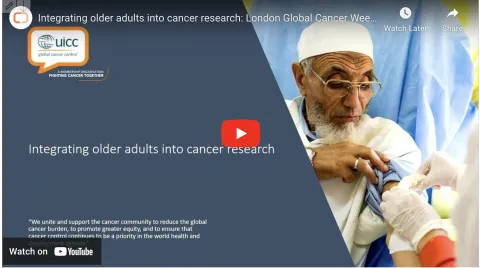
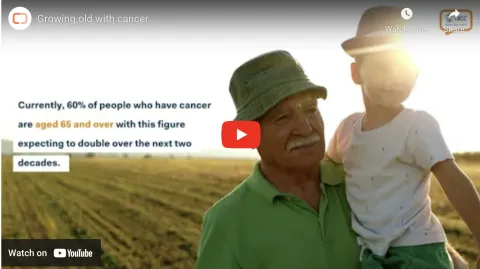
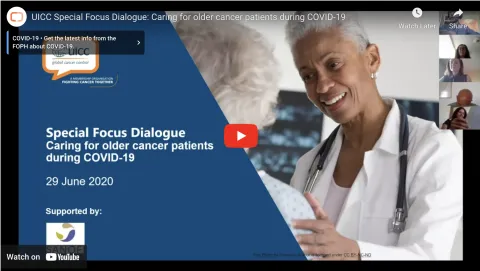
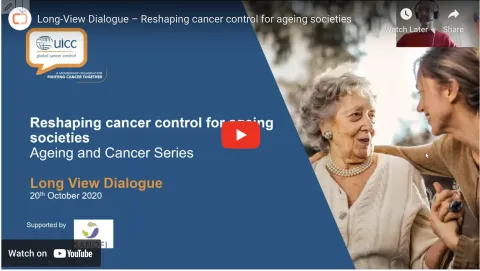
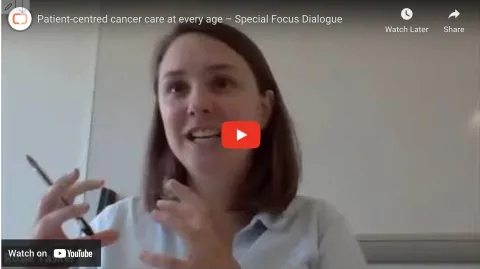
References
- [i]United Nations, Department of Economic and Social Affairs, WORLD SOCIAL REPORT 2023: LEAVING NO ONE BEHIND IN AN AGEING WORLD. https://www.un.org/development/desa/dspd/wp-content/uploads/sites/22/2023/01/WSR_2023_Chapter_Key_Messages.pdf (accessed 31 January 2024)
- [ii]Adapted from 2020 SIOG priorities
Last update
Thursday 01 February 2024